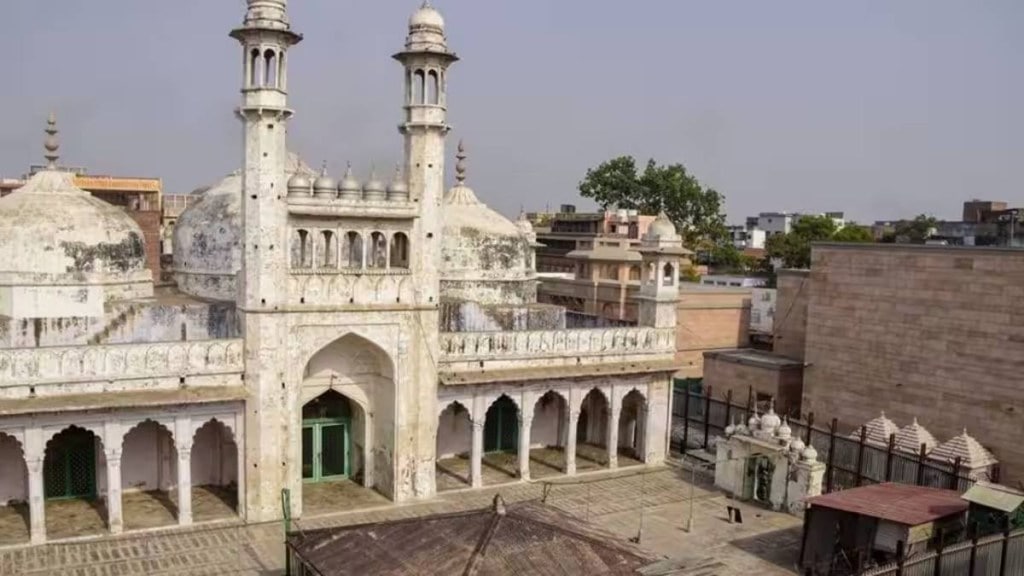The Vishwa Hindu Parishad (VHP) on Saturday claimed that the Gyanvapi mosque structure be declared as a Hindu temple and handed over to the community as the report by the Archaeological Survey of India (ASI) has “reconfirmed” that the Gyanvapi mosque in Varanasi was constructed by demolishing a “magnificent temple” at the site.
“The evidence collected and the conclusions provided by the ASI do prove that the religious character of this place of worship existed on the 15th day of August, 1947, and as at present is of a Hindu Temple,” VHP working president Alok Kumar said in a statement.
His statement came after the ASI survey report on the Gyanvapi mosque complex was asked to be made public by the Varanasi district court on Thursday, with hard copies being asked to submit to both sides.
The ASI’s report stated that 55 Hindu deity sculptures were found in the Gyanvapi complex premises in Varanasi.
“Thus, even as per Section 4 of the Places of Worship Act, 1991, the structure should be declared as a Hindu temple,” he demanded.
The VHP also called upon the Intezamia Committee, that manages the mosque, to agree to “respectfully shift” the Gyanvapi mosque to another appropriate place and to hand over the original site of Kashi Vishvanatha to the Hindu society. “The VHP believes that this righteous action shall be an important step towards creating amicable relations between the two prominent communities of Bharat,” Kumar said.
“Hand over the Gyanvapi structure to Hindus,” Kumar said.
He claimed the evidence collected by ASI “reconfirms that the mosque had been constructed after demolishing a magnificent temple”.
A part of the temple structure, particularly the western wall, is the remaining part of the Hindu temple, he further claimed. The ASI report also proves that parts of the pre-existing temple including pillars and pilasters were reused with modifications to extend the span of the mosque and in the construction of the ‘sahan’, he added.
“The Shivalinga in what was called the ‘wazukhana’ leaves no doubt that the structure does not have the character of a mosque. The discovery of the names including the Janardana, Rudra and Umeswara in the inscriptions found in the structure are the tell-tale evidence of this being a temple,” Kumar claimed.
He also demanded that Hindus be permitted to offer “sewa puja” to the ‘Shivlinga’ found in the “so-called Wazukhana area” at the disputed site.
After Kumar’s statements, Shri Ram Janmabhoomi Teerth Kshetra Chief Priest Acharya Satyendra Das on Sunday said that the Muslims must hand over the Gyanvapi mosque to Hindus.
“According to Shariat, Muslims cannot offer namaz in a mosque built on a Hindu structure. When it has been proved that this mosque was built on a temple. They should hand over the Gyanvapi Mosque to the Hindus. This way brotherhood will be maintained,” he told news agency ANI.
The Gyanvapi mosque stands adjacent to the Kashi Vishwanath Temple in Uttar Pradesh’s Varanasi. According to the available historical record, it was built in the 17th century on the orders of the Mughal emperor Aurangzeb after destroying the original Kashi Vishwanath Temple. The present temple was subsequently built next to the mosque by the orders of Queen Ahilya Bai Holkar in the late 18th century.

